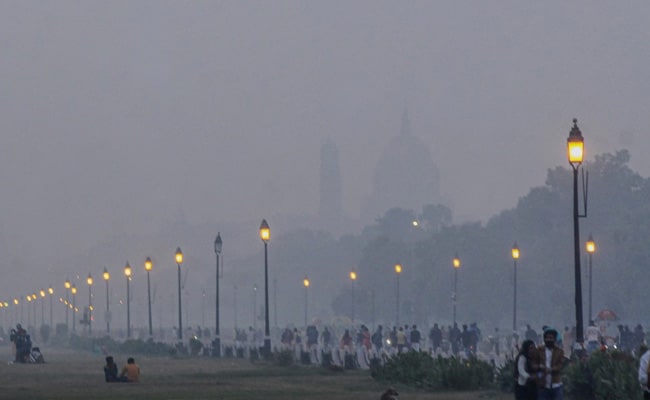
Delhi’s 24-hour average air quality index (AQI) stood at 248 on Saturday. (File)
New Delhi:
Amid a likely increase in pollution levels, the Centre’s air quality panel on Saturday directed authorities in the National Capital Region to increase parking fees to discourage private transport and enhance the services of CNG or electric buses and metro trains.
The action comes as part of ‘Stage II’ of the central government’s pollution control plan known as the ‘Graded Response Action Plan’ (GRAP), which is implemented in the Delhi-NCR to combat air pollution during the winter season.
At a meeting to review the air quality situation in the Delhi-NCR, the Commission for Air Quality Management (CAQM), a statutory body responsible for proactively implementing GRAP, said forecasts by the India Meteorological Department and the Indian Institute of Tropical Meteorology suggest Delhi’s overall air quality is likely to dip and enter the ‘very poor’ category on October 23 and 24, owing to unfavourable meteorological and climatic conditions.
Delhi’s 24-hour average air quality index (AQI) stood at 248 on Saturday.
The panel therefore decided to invoke the measures under Stage II of GRAP in the entire NCR in addition to steps already taken under Stage I.
“All actions as envisaged under Stage-II be implemented in right earnest by all the agencies concerned in NCR with immediate effect, in addition to all Stage-I actions of GRAP already in force,” it said in an order.
GRAP categorises actions into four stages: Stage I – ‘Poor’ (AQI 201-300); Stage II – ‘Very Poor’ (AQI 301-400); Stage III – ‘Severe’ (AQI 401-450); and Stage IV – ‘Severe Plus’ (AQI >450).
Stage I mandates the suspension of work at private construction and demolition projects with a plot size equal to or exceeding 500 square metres that are not registered on the state government’s portal for remote monitoring of dust mitigation measures.
Authorities are also tasked with enforcing a complete ban on the use of coal and firewood in ‘tandoors’ at hotels, restaurants and open eateries, along with taking punitive action against polluting industrial units and thermal power plants within 300 kilometres of Delhi.
Ensuring the proper implementation of guidelines for dust mitigation at construction and demolition project sites and sound environmental management of resulting waste is also part of Stage I.
Stage II measures involve increasing parking fees to discourage private transport and enhancing CNG or electric bus and metro services by introducing additional fleets and increasing service frequency.
Under Stage III, BS-III petrol and BS-IV diesel four-wheelers are prohibited from operating in Delhi, Gurugram, Faridabad, Ghaziabad, and Gautam Buddh Nagar.
Stage III involves a complete halt on construction and demolition work, except for essential government projects, besides mining and stone crushing. It also includes a ban on the entry of light commercial vehicles registered outside Delhi and diesel-guzzling trucks, and medium and heavy goods vehicles (except those involved in essential services).
Stage IV includes banning all types of construction and demolition work. State governments are authorised to decide on online classes for school students and work-from-home arrangements for government and private offices during such situations.
(Except for the headline, this story has not been edited by NDTV staff and is published from a syndicated feed.)




